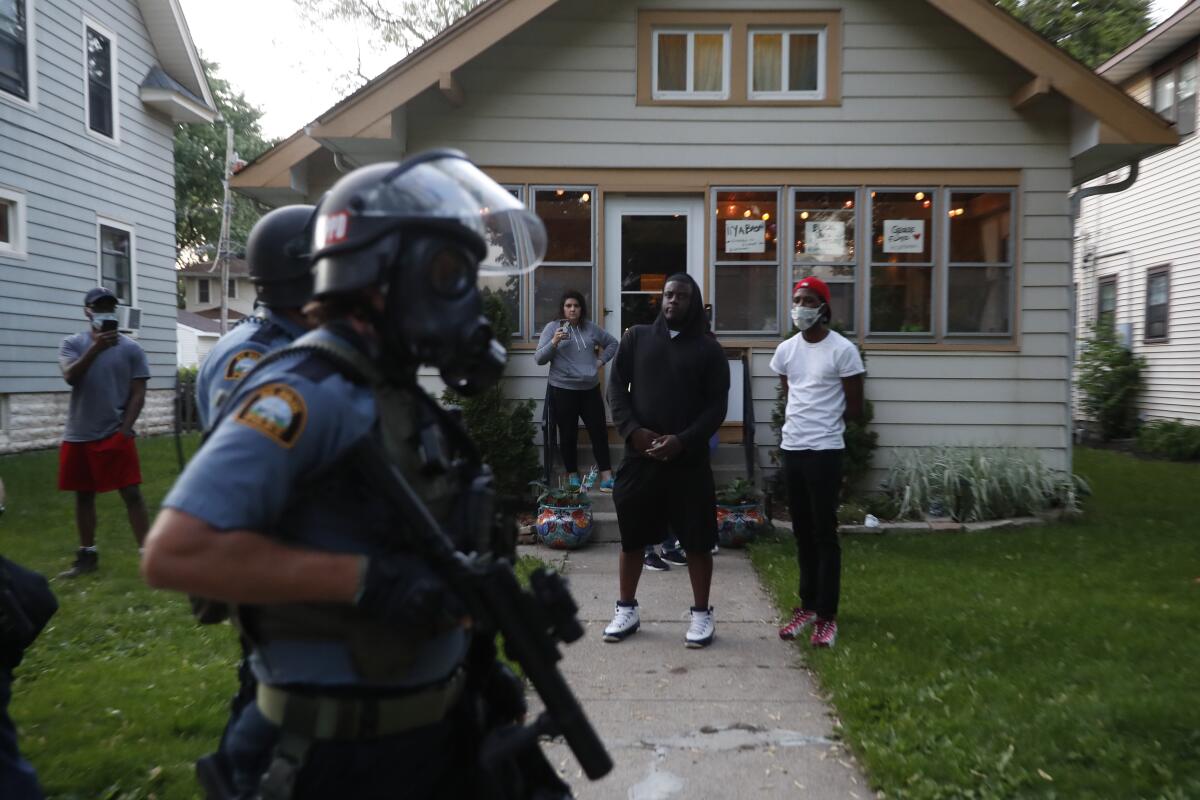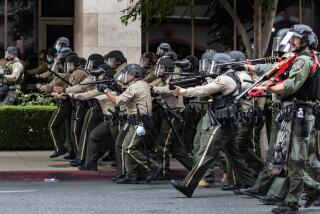Letters to the Editor: Outrage over George Floyd’s killing: ‘Slave nation cannot continue’

To the editor: You know how some of your readers complain about front-page news reports that read like an op-ed article? Well, if there was ever an opinion piece that belonged on your front page, it is LZ Granderson’s column, “George Floyd, Central Park and the familiar terror they inspire.”
It should be read by everyone, including in schools and police academies. I am always appalled at the abject stupidity and inhumanity of our police forces across the country, from the officer on the street to all in management who allow this culture of racism to continue.
But Granderson’s story makes the pervasiveness of these practices here in our own supposedly tolerant and caring region of Southern California particularly clear.
Ann Joynt, Laguna Woods
..
To the editor: It all started with slavery and dispossession -- taking indigenous land and the bodies and souls of black people and making this theft the defining feature of whiteness. The law itself became the means to enshrine whiteness as the very meaning of what it is to be a citizen.
We have only to examine the birth of solitary confinement, an American gift to the world, to see how destroying the mind of a prisoner comes to be accepted as ordinary and necessary, as it was during slavery. If the enslaved went from the plantation to the prison, then it became necessary to craft a legal system that would preserve the system intact, lawfully, as it did with slavery.
The law of today is the law of a slave nation, where black lives do not matter and where these rituals of terror that we see in the killing of George Floyd must be performed again and again.
I need to say this out loud: The slave nation cannot continue.
Sherene H. Razack, Los Angeles
The writer is a professor of gender studies at UCLA whose teaching and research focuses on racial violence.
..
To the editor: My African American 3-year-old son was playing in the front yard of our home with his white sister, his Korean Hispanic sister and a group of other children. It was 1975, and we lived in predominantly white Pacific Palisades. Multiracial families with adopted nonwhite children were an oddity at that time.
A neighborhood boy wanted to join the children in a ball game, but when he was told to wait his turn he shouted the “N” word at my son. My 7-year-old daughter ran into the house to grab a baseball bat screaming with rage.
I knocked on the boy’s front door, but his parents refused to speak to me. Neighbors told me the boy had a history of behavior problems and not to expect an apology.
I now have three African American grandsons, and I fear for their safety.
Donna Myrow, Palm Springs
..
To the editor: I want Granderson and other black people in our country to know that there are whites who are “feeling,” along with you, at this time. I am a white woman in my 70s who has also had an unsettled stomach and a headache since Tuesday -- and during all the far too frequent times black people have suffered injustice in our country.
In my therapy practice, I have heard countless stories like those of Grandserson from my black clients. One successful black man who had a nice car that he drove to a good job told me he sold his vehicle and started taking the bus because he was stopped so often by police. That was in Los Angeles.
I can’t pretend to understand the feelings of black people, but I know that I too feel grief and rage at what goes on in our country. Today I feel embarrassed and ashamed to be an American.
Susan Shell, Los Angeles
More to Read
A cure for the common opinion
Get thought-provoking perspectives with our weekly newsletter.
You may occasionally receive promotional content from the Los Angeles Times.










